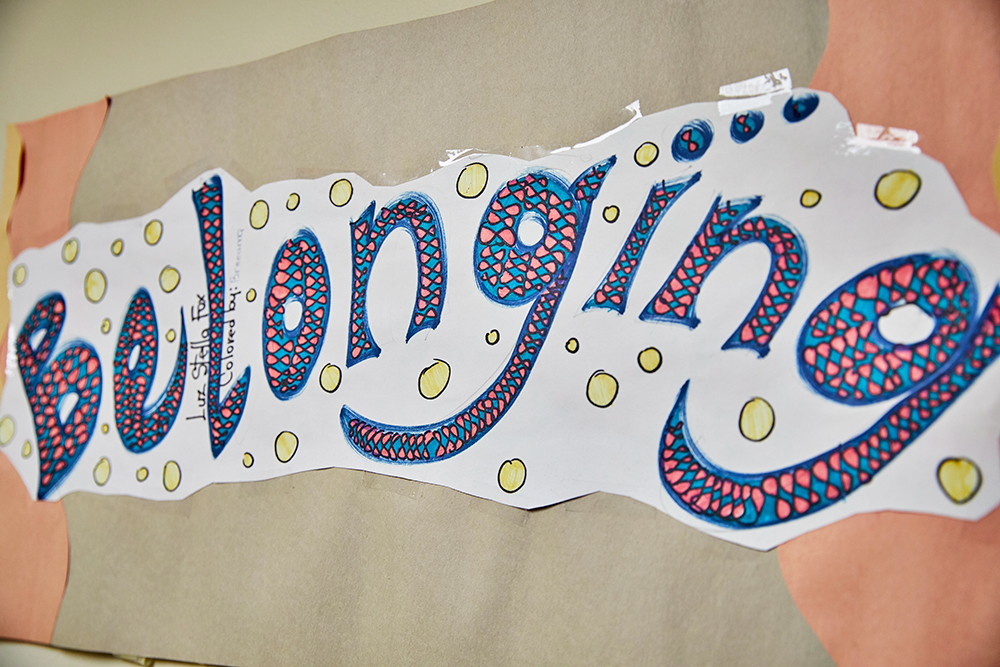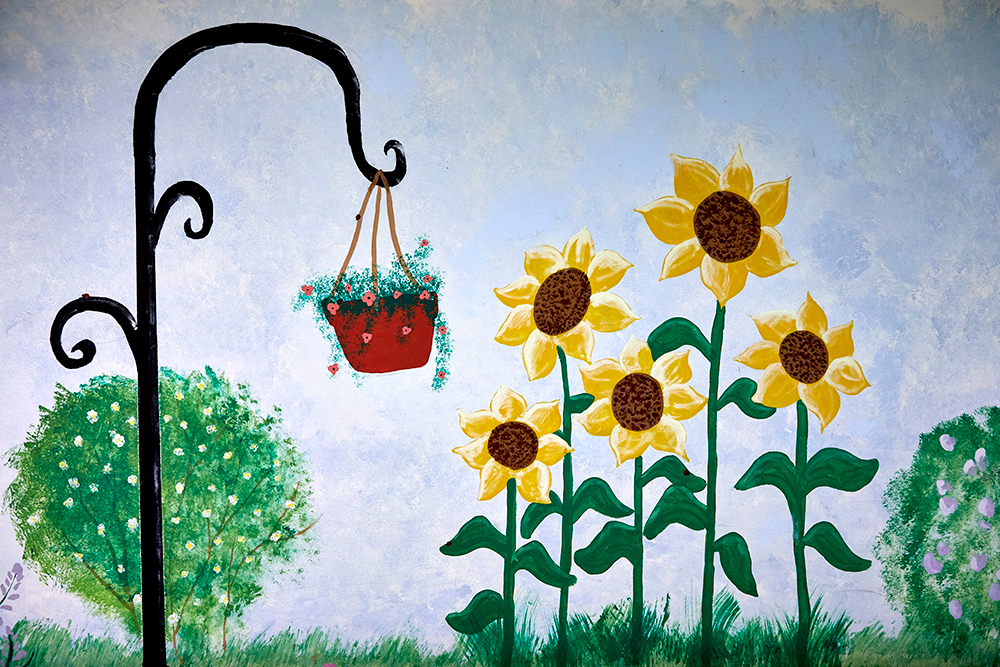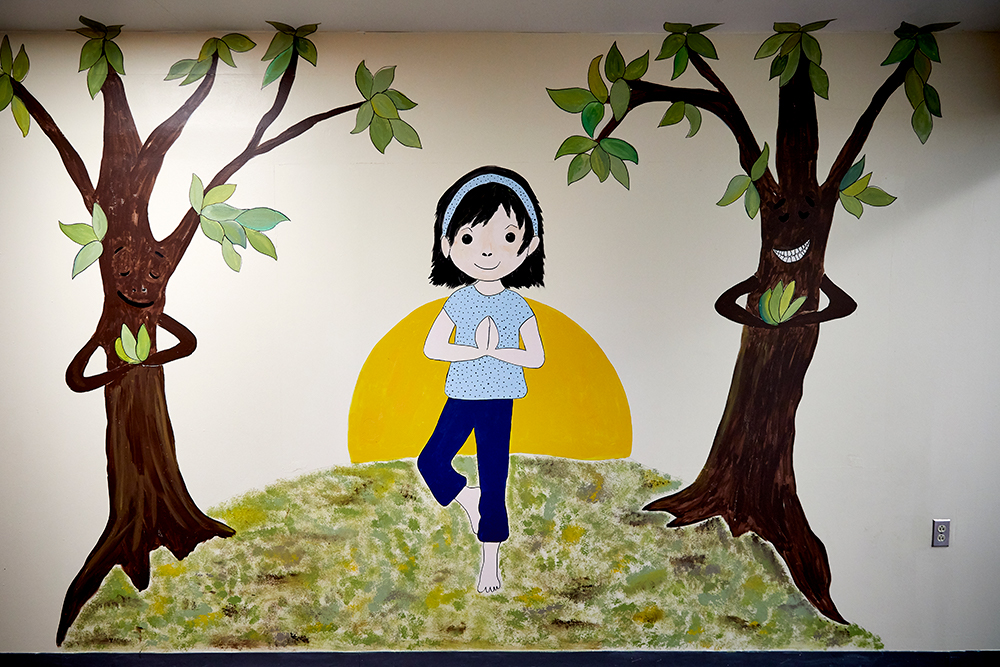Bradley Center Success Stories
Proof that Healing Is Within Reach
Children who have experienced trauma, who suffer from mental health challenges, or who struggle with behavioral issues can sometimes feel as if their situation is hopeless. But with the right kind of support, understanding, and opportunities, hope is always on the horizon.
No matter how difficult their personal journey is, or how long their road to recovery may be, these stories celebrate the many ways kids learn to find their way forward at Bradley.
“Our goal in the admissions department is to pair every child with the professionals who are best suited to meet that child’s individual needs. We strive to gather as much information as possible and identify the most beneficial services for that child. Our admissions staff are always available to support and encourage children and families on their healing journey.”
Sarah’s Story
Bradley was, in many ways, Sarah’s last chance.
She arrived at The Bradley Center at the age of 15 and in serious need of trauma-informed care which no prior facility had been able to provide. By the time she reached Bradley, Sarah had experienced multiple placements in mental health settings, including five inpatient hospitalizations, two previous RTF settings, two shelters, and a foster home placement.
Sarah suffered from a long history of complex trauma that began at the age of 5 and ended at the age of 12, when she was removed from her mother’s home by CYF. Her reactions to this trauma led Sarah to instances of self-injury, suicidal ideations and gestures, physical aggression toward others, and running away from home.
Sarah tended to decompensate whenever she discussed her future, because she had feelings of hopelessness due to the lack of contact with her family. Sarah also reported having witnessed domestic violence, and she experienced flashbacks of her previous abuse that were triggered by males.
As a Sanctuary® Certified agency, The Bradley Center was able to recognize Sarah’s trauma and slowly begin the process of helping her discuss and heal from her past abuse.
This began when Sarah was introduced to her treatment team, including her therapist and other members of the unit staff. She was encouraged to build healthy relationships with the members of her team, and to discuss and process her past trauma during therapy. This process of encouraging Sarah to tell her story was part of the effort to help her put her trauma into the context of the past, so she could begin to create a healthy present and imagine a positive future.
Sarah’s recovery began slowly, and there were many times when her progress appeared to be non-existent. This is not uncommon during a child’s stay at The Bradley Center. There are often times when children’s outward behavior regresses as they get closer to discussing and dealing with their past trauma. But with the support of our staff and the relationships they have built during their stay, the children are eventually able to work through these challenges and regain control of their own self-image and of their behaviors and reactions.
Sarah’s mental health difficulties were addressed through an accurate diagnosis, appropriate medication, and regular visits with a psychiatrist, during which time Sarah was encouraged to be an active participant in her own treatment by discussing the efficacy of her prescribed medication. Encouraging children to advocate for themselves is not only a life skill that they can use outside of The Bradley Center, but it is also part of the process of healing from trauma. Having a voice — and the strength and willingness to use it — enables children to learn the skills they need to overcome their past trauma and protect themselves in the future.
Initially, there was not a cohesive plan for Sarah’s future after Bradley, which added to her stress and anxiety and sometimes impaired her ability to control herself. Fortunately, her community team identified living with her aunt as a possible option for discharge, so Sarah’s aunt began visiting her at The Bradley Center. The success of these visits resulted in Sarah being able to visit with her aunt in the community for several hours, and eventually for full-day visits. The success of these visits grew to the point where Sarah’s aunt was officially considered as a discharge option, and Sarah was able to begin weekend overnight therapeutic visits.
After six weeks of successful weekend overnight therapeutic visits, Sarah was successfully discharged into her aunt’s care. Since that time, Sarah has been able to reintegrate back into the community. She returned to public school, and she even developed the courage to try out for her school’s cheerleading team.
Through her work at Bradley, Sarah was able to transform herself from a person who felt hopeless and struggled with anxiety to a confident and focused adolescent who saw herself in a new light.
Mikala’s Story
Mikala came to The Bradley Center with a long history of delinquent behavior: skipping school, running away from home, experimenting with drugs and alcohol, and getting into minor trouble with the law. These behaviors began at the age of 11 and continued throughout high school.
When Mikala arrived at Bradley, she was 17, she had a long history of failed placements, and she was particularly depressed about being back in yet another facility. She made several suicidal statements and was placed on Special Observation so that our staff could keep a close eye on her and maintain her safety if Mikala could not.
Needless to say, this was a rocky beginning to Mikala’s time at Bradley, but our staff members were undaunted by her initial presentation. Instead, they approached her case from a trauma-informed perspective, and were able to help Mikala to begin verbalizing her past trauma and her mental health struggles, so she could take ownership of her behavior.
Over time, Mikala and the staff began to recognize patterns in her aggression, her self-injurious behaviors, and her sleep habits. Mikala would often be awake for many hours, drawing or writing in her journal until 4:00 or 5:00 A.M., and then sleeping for just an hour or two before going to school. Her aggression and self-injury appeared to coincide with her inability to sleep. This pattern seemed to occur every four weeks, and last for a week to ten days. The team investigated this situation further and assessed Mikala for bipolar disorder.
A large part of every child’s journey at The Bradley Center is getting a proper diagnosis and appropriate treatment. In Mikala’s case, this meant helping her understand and recognize the signs of bipolar disorder and mania — including a decreased need for sleep, increased aggression, and increased energy — and the importance of taking her medication regularly.
Many times, children will use medication refusal as a way to show others that they have the ultimate control over themselves and their bodies. It is the job of the treatment team to help a child in Mikala’s situation understand the need for her medication, ensure that she takes her medication as prescribed, and make sure that she continually discusses her response to her medication with her doctor, who will assess its efficacy for treating the child’s symptoms over time.
Helping Mikala recognize and manage the signs of her bipolar disorder, as well as helping her discuss and process her past trauma, was an ongoing effort throughout her stay.
Eventually, Mikala was successfully discharged from The Bradley Center, and she became a peer advocate with her home county for several years. In the years following her discharge, Mikala moved out of state and enrolled in college. She recently reported that she has married, and is now the proud mother of a healthy young son. She still attends college part-time, and she is “still taking my medications, because they help.”
How Our Staff Sees Success
“We had a student named Cameron who needed to work on some aspects of his behavior. Although he struggled at times, when he graduated he was able to enlist in the military and has since become employed within his community. Cameron is a great example of a student who was able to address his specific disabilities and learn the skills he needed to cope when in the community.” — a Bradley Center Lead Teacher
“When a child can openly and appropriately have difficult, yet important, conversations with their families during sessions, that’s a big step.” — a Bradley Center Therapist
“I love seeing my students succeed outside The Bradley Center by gaining employment in their community and becoming active citizens. There are two students whom I have seen actively holding steady jobs since they graduated from Bradley. It is so wonderful to see them being successful in life and taking what they learned with us out into their communities.” — a Bradley Center Special Education Teacher
“Our goal is always to teach the children as much as we can about their individual health needs. Learning about general wellness, nutrition, and age-appropriate physical health is so important for their future. When we, as nurses, know our audience well and provide the right education, it is the first step to prevention for the children we care for.”




